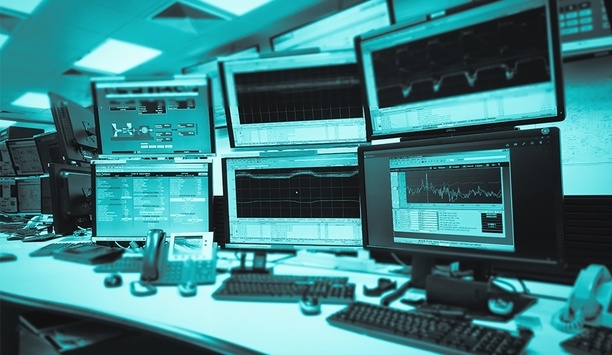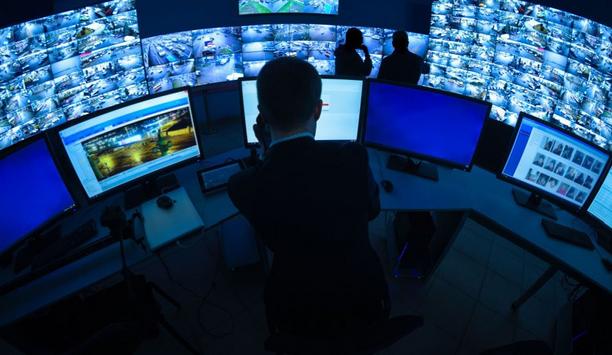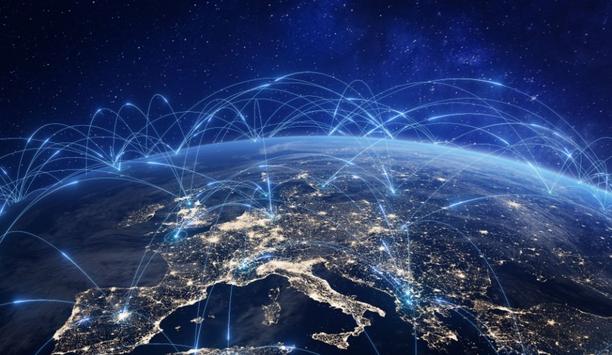IP security solutions - Round table discussions
As a subset of the larger economy, the security industry is bound to feel the effects of an economic downturn. Such was the case in 2020 when the COVID-19 pandemic undermined economic growth and presented a brand new set of challenges to business. The security industry has been able to pivot toward emerging opportunities, but that success has been offset by broader economic challenges. We asked this week’s Expert Panel Roundtable: What impact, positive or negative, has the larger economy h...
Internet-based training has long provided a less-expensive alternative to in-person classroom time. There are even universities that provide most or all of their instruction online. However, the COVID-19 pandemic has expanded acceptance even more and increased usage of internet-based meeting and learning tools. We asked this week’s Expert Panel Roundtable: How can remote or internet-based training benefit the physical security market?
We are all more aware than ever of the need for cybersecurity. The Internet of Things is a scary place when you think about all the potential for various cyber-attacks that can disrupt system operation and negatively impact a customer’s business. Because most physical security systems today are IP-based, the two formerly separate disciplines are more intertwined than ever. We asked this week’s Expert Panel Roundtable: How can cybersecurity challenges impact the physical security of a...
Ten years is a long time, but it seems to pass in an instant in the world of security. In terms of technology, 2010 is ages ago. Changes in the market have been transformative during that decade, and we called on our Expert Panel Roundtable to highlight some of those changes. We asked this week’s panelists: What was the biggest change in the security industry in the 2010-2019 decade?
Products are the building blocks of the security industry. Historically much of the industry’s sales effort has been focused on highlighting product features and functionality. At the end of the day, however, an end user is less interested in the performance of any individual system component than in the system as a whole. Lately, the industry has embraced a changing sales approach by emphasising systems rather than products. We asked this week’s Expert Panel Roundtable: What are the...
Securing large campus environments can be particularly demanding and requires a range of technology solutions. In effect, a campus may represent a dozen or more individual facilities to be secured, in addition to protecting the overall environment. Seeking more insight into the number and variety of needs of securing a campus, we asked this week’s Expert Panel Roundtable: What are the security challenges of protecting large campus environments?
Along with the integration of security and other systems in an enterprise environment comes a need to centralise monitoring and control of the unified network. A control room is at the center of managing integrated systems, providing the focal point to collect information from a variety of sensors, analyse the data, and then respond appropriately. The technologies that drive these functions are changing and evolving, thus increasing the efficiency and efficacy of systems. We asked this week&rsqu...
An aging employee population and the influx of a new generation of workers and customers is driving change in the physical security industry. Millennials – those born in the 1980s and mid-1990s – are especially impacting how the industry operates, the technologies it produces, and the customers it serves. This tech-savvy generation grew up with the Internet at their fingertips. They embrace innovation in all its glory and expect it to play a seamless role in their lives – and w...
The new school year is a good time to reflect on the role of security in protecting our schools. From video to access control to some newer technologies, our Expert Panel Roundtable found plenty to talk about when we asked this week’s question: How does security technology make our schools safer?
Driven by technology developments such as voice recognition, smart devices and the Internet of Things, our homes are getting “smarter” all the time. Increasingly, we expect our residential environments to be responsive to our voice commands, whether we are adjusting a thermostat, turning on a light, or lowering the window shade. Smarter home integration yields new opportunities and challenges for home security, too, which contributes an element of safety and protection to the conveni...
Passwords are one of the most familiar elements of information systems, but also one that can be overlooked or underutilised. New alternatives are emerging, and the role of passwords is evolving in the age of the Internet of Things. We asked this week’s Expert Panel Roundtable: How is the role of passwords changing in physical security systems?
One impact of Chinese companies entering the physical security market has been an erosion in product pricing, creating what has been called the "race to the bottom". However, political forces and cybersecurity concerns have presented new challenges for Chinese companies. Adding cybersecurity increases costs, and the addition of more functionality to edge devices is another trend that has impacted product pricing. We asked this week's Expert Panel Roundtable: Has price erosion ended (or slowed do...
In the digital age, software is a component of almost all systems, including those that drive the physical security market. A trend toward hardware commoditisation is making the role of software even more central to providing value to security solutions. Software developments make more things possible and drive innovation in the market. We asked this week's Expert Panel Roundtable: How do software improvements drive physical security?
There will be more artificial intelligence, more machine learning, video systems with more capabilities, and all of it will add greater value to our solutions. Those are among the expectations of our Expert Panel Roundtable as they collectively look ahead to the remainder of 2019. One unexpected prediction is that AI will not prove to be a game changer – at least not yet. We asked this week’s Expert Panel Roundtable: What will be the biggest surprise for security in the second half o...
The definition of a standard is “an authoritative principle or rule that usually implies a model or pattern for guidance, by comparison with which the quantity, excellence, correctness, etc., of other things may be determined.” In technology markets, such as physical security, standards are agreed-upon language, specifications or processes that are used across the board by multiple stakeholders to enable easier interconnectivity and smoother operation of systems. We asked this week&r...
ISC West 2019 is in the industry’s rear-view mirror, and what a show it was! The busy three days in April offered a preview of exciting technologies and industry trends for the coming year. We asked this week’s Expert Panel Roundtable: What was the big news at ISC West 2019?
Ethical hackers are familiar to the world of cybersecurity. As cybersecurity awareness increases in physical security, they are also playing a larger role to ensure the safety of networked and information technologies used in our market. We asked this week’s Expert Panel Roundtable: What is the role of ‘ethical hackers’ to ensure cybersecurity of networked products in the physical security market?
A basic tenet of sales is ABC – always be closing. But it's a principle that most professional salespeople would say oversimplifies the process. Especially in a sophisticated, high-tech market such as physical security, the required sales skills are much more involved and nuanced. We asked this week's Expert Panel Roundtable: What unique characteristics are required of salespeople in the arena of physical security systems?
The year ahead holds endless promise for the physical security industry, and much of that future will be determined by which technologies the industry embraces. The menu of possibilities is long – from artificial intelligence to the Internet of Things to the cloud and much more – and each technology trend has the potential to transform the market in its own way. We tapped into the collective expertise of our Expert Panel Roundtable to answer this question: What technology trend will...
They say that every choice has a cost. It's a basic principle that, economically speaking, nothing is free. If it doesn't cost actual money, it may be expensive in terms of time, attention and/or effort. These are interesting observations to keep in mind as one peruses the various "free" video management system (VMS) offerings available on the market. Some are provided by camera companies to unify their products into a "system", even if it's a small one. Other free VMS offerings are entry-level...
Even the most advanced and sophisticated security systems are limited in their effectiveness by a factor that is common to all systems – the human factor. How effectively integrators install systems and how productively users interface with their systems both depend largely on how well individual people are trained. We asked this week’s Expert Panel Roundtable: What is the changing role of training in the security and video surveillance market?
We are living in the age of Big Data, and businesses are inundated with large volumes of data every day. Success depends on capturing, analysing and ultimately transforming that data into information and intelligence that can be used to improve the business. So, it is with today's physical access control and video systems, too, which also generate unprecedented levels of data. But how can we make the data useful to end users and how can they realise its full value? We asked this week's Expert Pa...
What happens after the sale is complete, after the contracts are all signed and sealed? That’s when an abundance of variables can kick in – variables that can mean the difference between a successful security system or a case of buyer’s remorse. The features and value of equipment involved in a security system are well known before the sale closes, as hopefully are the integrator’s and end-user’s expectations about after-sale service. But what is the reality of afte...
Consolidation – a decrease in the number of companies in a market achieved through mergers and acquisitions (M&A) – has been an important trend among manufacturers in the physical security market for many years. More recently, the trend has also appeared to extend to the integrator market. Larger integrators have been buying up other large integrators; in some cases, they have also been buying up smaller, regional integrators to expand their geographic coverage area. We wondered...
The reviews are in, and ISC West was another hit. Brisk attendance and a comprehensive lineup of the industry’s top companies and products contributed to another successful show for Reed Exhibitions. Our Expert Panel Roundtable, who have attended many such events, added their own reflections to the industry’s post-ISC glow. We asked this week’s Expert Panel Roundtable: How successful was ISC West 2018 for security industry exhibitors and visitors?
The residential/smart home market is undergoing revolutionary transformation, with a flood of new products and technologies helping to make our homes more connected, easier to manage and, yes, smarter. These massive steps forward provide challenges, and also opportunities, for the security industry, which has played a major role in protecting homes and residents for decades. We asked this week’s Expert Panel Roundtable: How are changes in the residential/smart home market impacting securit...
Cloud computing has been around since the turn of the millennium. Over the years, the concept of storing and accessing programs over the Internet (instead of using an on-premises computer system) has grown in almost every realm of business. Some might say the physical security industry has come late to the party, delayed in some instances by (misguided?) concerns about cybersecurity of cloud systems. The bandwidth needed to transfer video to the cloud has also been a challenge. We asked this wee...
The manufacturers behind today’s security technologies are a varied bunch. There are large manufacturers with deep pockets and plenty of resources. And there are smaller manufacturers who are nimble, can react faster to changing market conditions and to whom each customer represents a hard-fought win. There are also plenty of manufacturers in the middle ground. But what impact does the size of a company have on the quality of its products? We took the question to this week’s Expert P...
Enterprise customers provide a large, and very lucrative, business opportunity for the physical security market. These customers include big global companies with plenty of revenue to spend and employees and facilities to protect. As a group, enterprise customers also tend to be a demanding lot, requiring systems that are large, scalable, that can operate across a wide geographic area, and that provide top-notch system performance. Enterprise customers set the standards of performance for the en...
The end of the year is a great time to take stock of one’s accomplishments during the year, and to reflect on successes and failures, where we are and where we’re going. 2017 brought a lot of change to the physical security market, but were the changes positive or negative? Our Expert Panelists tend to be a thoughtful and reflective group, so we wanted to get their thoughts and insights at year-end about 2017 in the security market. We asked this week’s Expert Panel Roundtable:...
Palm vein recognition
DownloadThe key to unlocking K12 school safety grants
DownloadSelecting the right network video recorder (NVR) for any vertical market
DownloadPhysical access control
DownloadCybersecurity for enterprise: The essential guide to protecting your business
Download


































